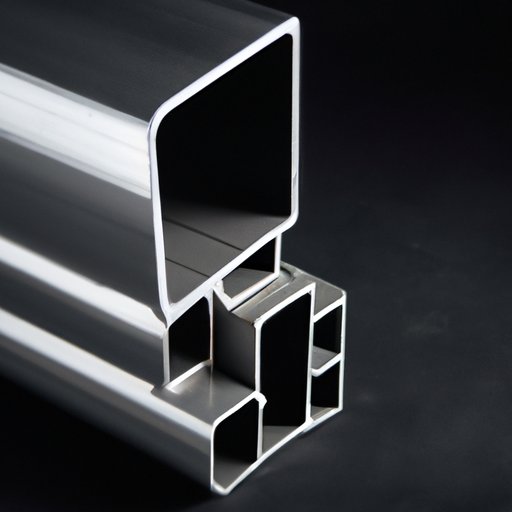Introduction
Aluminum pipe profiles are a type of extruded aluminum product that can be used for a variety of purposes. They are made by forcing molten aluminum through an extrusion die to create a shape that is often hollow or tubular in nature. The cross-sectional profile of the aluminum pipe profile can vary from rectangular to square to round depending on the application.
Aluminum pipe profiles offer many benefits over traditional steel pipe products. They are lightweight, corrosion-resistant, and easy to install. In addition, aluminum pipe profiles are available in a range of sizes and shapes, making them ideal for a wide variety of applications.
Product Spotlight: Aluminum Pipe Profiles
Aluminum pipe profiles offer a number of advantages over other materials. They are incredibly strong and durable yet lightweight, making them easier to transport and install. They are also highly resistant to corrosion and can withstand extreme temperatures without warping or cracking. Additionally, they are very cost-effective, as they require less material and labor to manufacture than traditional steel pipe.
Aluminum pipe profiles are commonly used in construction, plumbing, and automotive applications. They are also frequently used in furniture, shelving, and railing systems. Because of their strength and durability, aluminum pipe profiles are often used in structural applications such as bridge construction and building frames.

Manufacturing Processes for Aluminum Pipe Profiles
The manufacturing process for aluminum pipe profiles begins with the fabrication of the raw material. The aluminum is heated to a liquid state and then forced through an extrusion die. This process creates a hollow tube with a cross-sectional profile of the desired shape. The extruded aluminum is then cut to length and any necessary holes are drilled.
Once the fabrication process is complete, the aluminum pipe profile must be finished. This typically involves sanding or polishing the surface to remove any imperfections. In some cases, the aluminum may also be powder coated or anodized to give it additional protection from corrosion.
Understanding the Different Types of Aluminum Pipe Profiles
There are three main types of aluminum pipe profiles: rectangular, square, and round. Each type has its own unique set of characteristics that make it suitable for different applications. Rectangular profiles are often used in construction and plumbing applications. Square profiles are most commonly used in shelving, railing, and furniture systems. Round profiles are often used in automotive applications.

Designing with Aluminum Pipe Profiles
When designing with aluminum pipe profiles, there are several considerations that designers must keep in mind. These include the size, shape, and thickness of the profile as well as the finish and surface treatments. Additionally, designers should consider the environmental conditions in which the aluminum will be used, as this can affect how it performs over time.
Designers should also consider the cost of the aluminum pipe profile and the potential savings that can be realized by using an aluminum product. As aluminum is lighter than steel, it is often more cost-effective to use aluminum pipe profiles instead of heavier steel products.

Advantages of Aluminum Pipe Profiles in Construction Projects
Aluminum pipe profiles offer a number of advantages when used in construction projects. They are strong and durable yet lightweight, making them easier to transport and install. Their corrosion-resistance ensures that they will last for years without requiring maintenance. Additionally, they are cost-effective, as they require less material and labor to manufacture than traditional steel pipe.
Aluminum pipe profiles are also extremely versatile, as they can be used in a variety of applications. They can be used for structural support, piping, and even decorative accents. Finally, aluminum pipe profiles are recyclable, making them an environmentally friendly choice for construction projects.
Conclusion
Aluminum pipe profiles offer many benefits over traditional steel pipe products. They are lightweight, corrosion-resistant, and easy to install. In addition, they are available in a range of sizes and shapes, making them ideal for a wide variety of applications. Aluminum pipe profiles are also cost-effective, as they require less material and labor to manufacture than steel pipe. Finally, they are recyclable, making them an environmentally friendly choice for construction projects.
For these reasons, aluminum pipe profiles are an excellent choice for a variety of applications. They are strong and durable yet lightweight, making them easier to install. They are also cost-effective and recyclable, making them a great choice for any construction project. With the right design and installation, aluminum pipe profiles can provide years of reliable performance.

